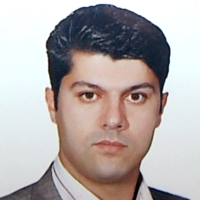Comparing the quality of life, support and social isolation of active and inactive elderly during the covid 19 pandemic
The sedentary and mechanical lifestyle and on the other hand, many problems that have arisen during the covid-19 pandemic have affected the indicators of the quality of life and isolation and social support of the elderly. Therefore, this research was conducted with the aim of comparing the quality of life, support and social isolation of active and inactive elderly people during the Covid-19 pandemic.
The descriptive research method was of comparative causal type. The statistical population of the research is the elderly over 60 years old in Lahijan city in 1401, where 213 people were selected by referring to parks, swimming pools, clubs and nursing homes. The data collection tools included the demographic profile form and quality of life questionnaires of Lipad (1998), social support by Zammit et al. (1988) and social isolation by Madrasi et al. (2016). Data were analyzed using Kolmogov Smirnov, Levin, variance and covariance tests with SPSS software version 25.
The results showed that there is a significant difference (0.001) between the quality of life, isolation and social support of active and inactive elderly with emphasis on the period of covid-19 (P≤0.001).
It seems that physical activity and participation in sports activities, due to being in public places, is an important variable in reducing social isolation and increasing social support, and taking into account that it can improve the quality of life of the elderly from a physical point of view. And raise the mouth.
-
Comparison of the effect of short-term exercises based on small games and traditional skill-based exercises on some indicators of physical fitness of Iraqi novice football players
Ahmas Salem Ebadi, *, Akram Jabr Algnabe, Zohreh Meshkati, Maryam Faraeen
Medical Journal of Mashhad University of Medical Sciences, -
The effect of energy balance training intervention and cognitive behavioral therapy on perceived stress, generalized anxiety disorder, and body mass index of deaf athletes in Semnan province
Golnaz Sedighi, Hasan Abdi *, Seyed Hadi Naghibi
Journal of Functional Research in Sport Psychology,


